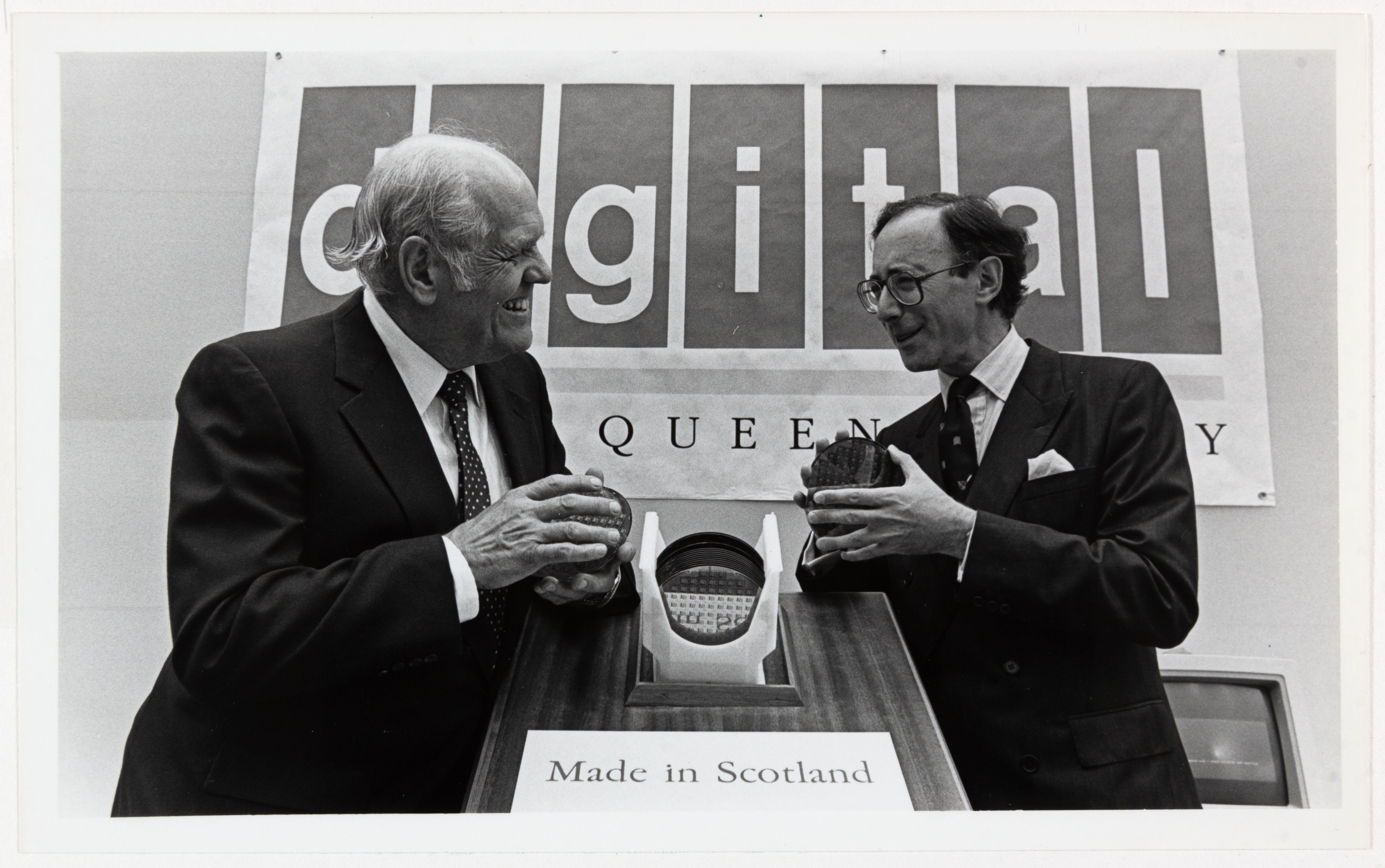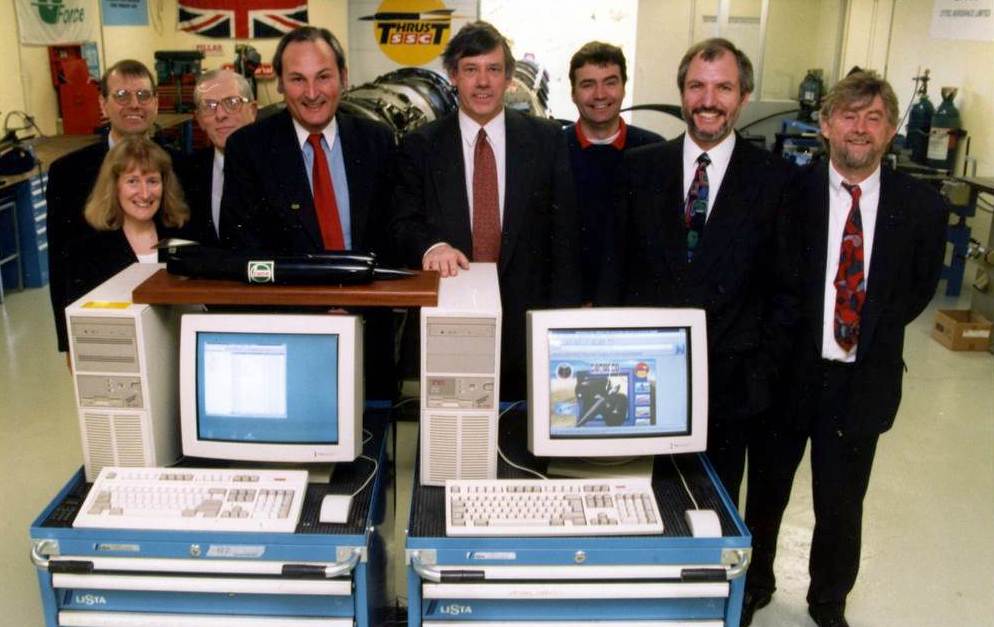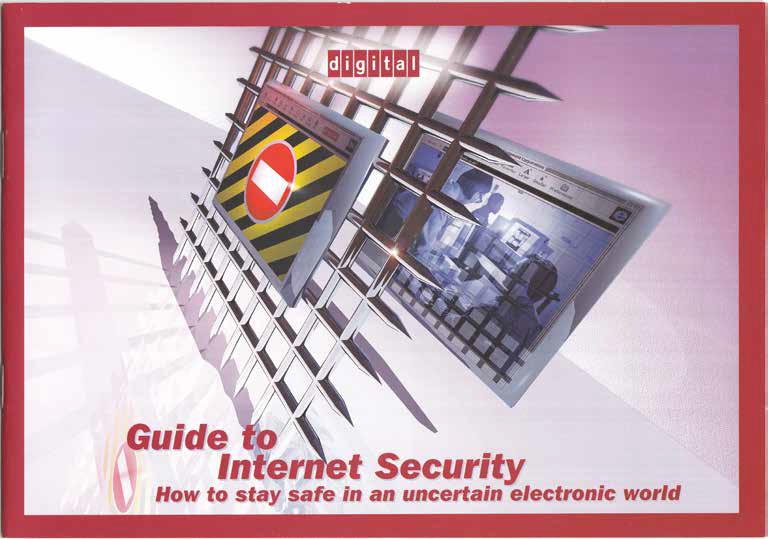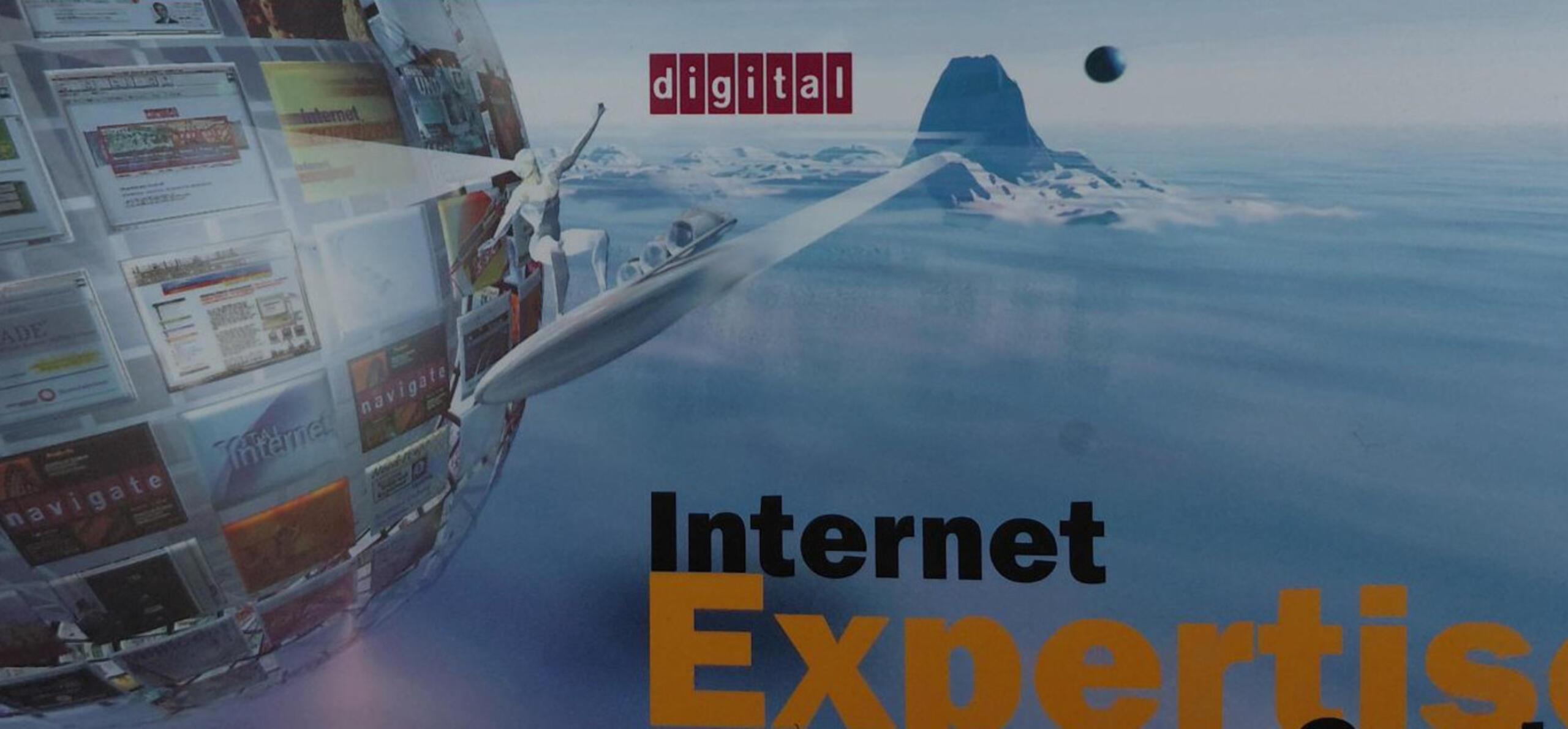Routing the Future: Reading’s Role in the World Wide Web
DEC’s reputation for reliable, high-performance computers and networking gave it an advantage in building the early internet - with Reading leading the charge. As the Cold War ended, DEC sold customers in Eastern Europe their first internet routers.
By the early 1990s, DEC’s systems were routing data and voice traffic and connecting academic and research organisations across Europe – it was essentially managing the entire European internet.

Ken Olsen with UK Secretary of State at opening of DEC chip manufacturing plant in Scotland
The Internet Business Group: Ideas Ahead of Their Time
DEC had recognised the importance of connecting its computers over networks at ever-increasing distances. Its engineering teams worked hard to solve challenges in wide-area networking, allowing customers to connect its powerful computers across cities, regions and further.
Meanwhile computer scientist Tim Berners-Lee working at CERN in Switzerland had made pioneering progress creating HTML to publish documents on large-scale networks and built the first web server and browser, bringing the early internet to even more people.
By 1994 DEC realised the importance of doing more than simply selling the infrastructure needed to build the internet – it had to encourage more people to use it, too. In recognition of this, it created the Internet Business Group in Reading to sponsor high-profile conceptual projects and showcase the internet’s potential. For example, DEC built and operated the website, internet shop and online video for the 1997 Guinness World Record attempt by Thrust SSC to be the first supersonic car.

Thrust super sonic car team with DEC's David Probert
The Group also ran training programmes in internet-related areas, including cyber security for businesses, and got the public online using branded 'kiosks' where they paid per minute to access services.
David Probert, who founded DEC’s European Internet Business Group, says:
We were different to the rest of DEC. Sometimes it created friction - we were ‘too marketing’ and wasting money, maybe, but we were religious about this. We said: ‘This is the way to go’.
- David Probert
Reading: Europe’s Internet Powerhouse
During a three-year period Probert’s Group helped DEC win more than 1,500 projects in 30 European countries.
DEC’s business mind was backed by solid R&D muscle. Reading had become a hotspot for research and development from the early 1980s, as DEC’s US parent began targeting new markets in software and networking outside its traditional computer business.
R&D had taken place in the US but telecoms and network markets in Europe were subject to lots of different rules and technical requirements specific to individual countries.
It therefore made sense for the US parent to transfer responsibility for R&D on European products to Reading, where it had ready access to a pool of talent.
A networking product called the DHV11 was the first output of Reading’s new R&D team. The DHV11 allowed DEC’s successful PDP-11 and MicroVAX computers to communicate over great distances using a dial-up, wide-area network.
DEC’s wide-area network engineers did more than simply build products – they built the fabric that makes today’s internet capable of functioning.
Engineers in Reading took the lead on development of important software routing protocols. These included Intermediate System to Intermediate System protocol. IS-IS calculates the best, most efficient path for an internet data packet.
Shaheed Haque, a senior DEC engineer who worked in the group, says:
You couldn’t have built the internet without that. It’s really as fundamental as that. The basic understanding of how you take companies like France Telecom and British Telecom to co-operate, to transfer data from Hong Kong to Boston – nobody has worked that out before.
- Shaheed Haque
Reading’s Role in Internet History
DEC has always pushed the frontiers of the possible, from the revolutionary PDP to powerful VAX/VMS, and from productivity software to work on early AI: with the internet, DEC began to look for new markets in software, networks and online services.
The Reading team played a fundamental role in getting DEC – and the world – online.

DEC's Guide to Internet Security
We were the world experts – every one of us – at what we were doing, almost down to the graduate engineer… the stuff we were working on didn’t exist yet.’
- Shaheed Haque
Return to the Reading's Digital Revolution homepage or explore the next section: Women in Digital





